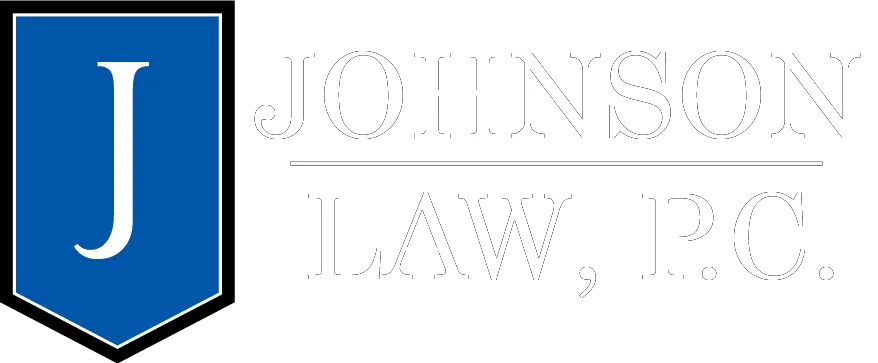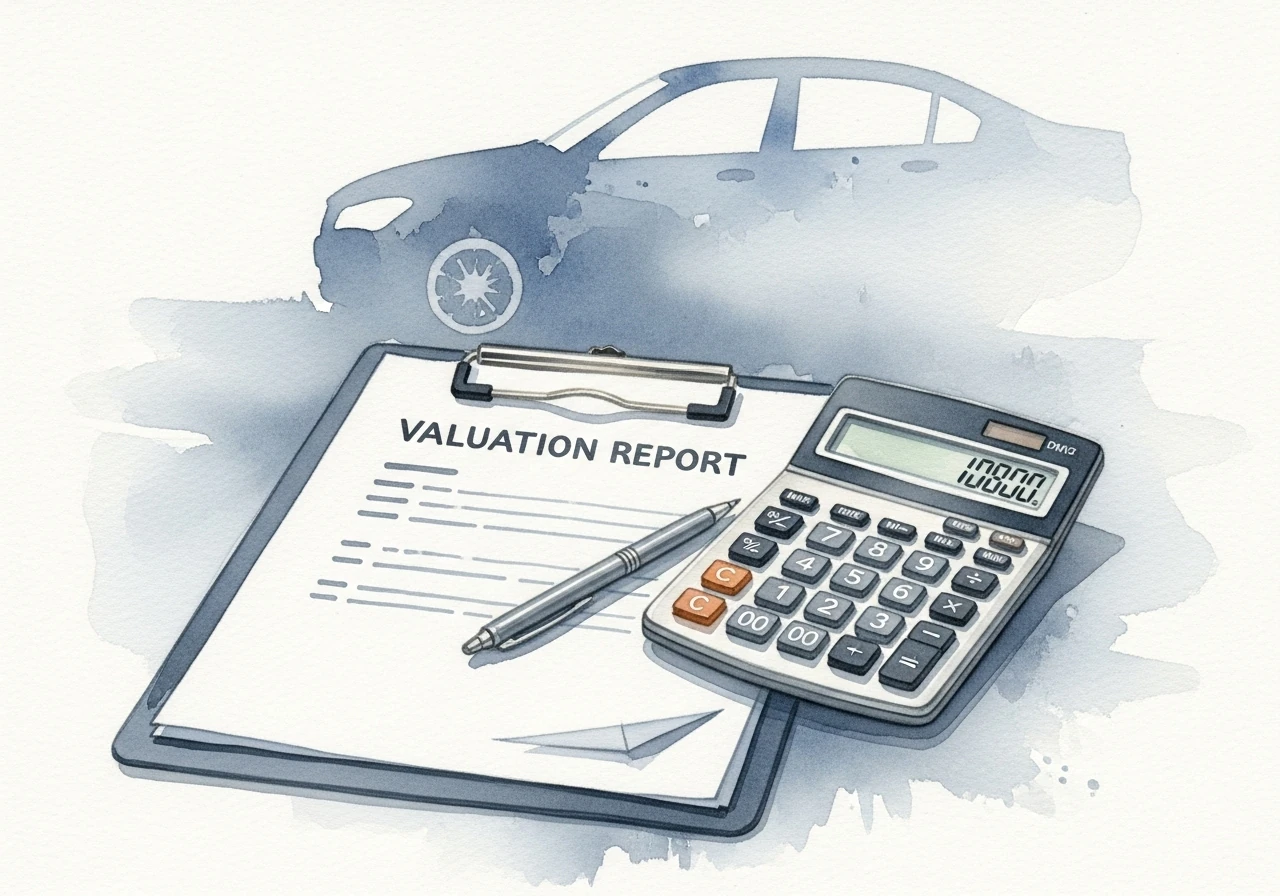DIMINISHED VALUE CLAIMS Recover Your Vehicle's Lost Value After an Accident When your car is damaged in an accident, it loses value even after repairs. We help you recover that lost value from the at-fault driver's insurance.

What are the unique challenges and legal requirements for diminished value claims in Oregon, and how do they differ from other personal injury cases?
Diminished value refers to the reduction in a vehicle's market worth after it has been involved in an accident, even if all repairs have been completed to a high standard. Unlike typical personal injury claims that focus on physical injuries, medical expenses, lost wages, and pain and suffering, a diminished value claim exclusively addresses the economic loss related to the stigma of a vehicle having an accident history. This inherent reduction in value, regardless of the quality of repairs, means that a car will likely sell for less than an identical vehicle that has never been damaged, making it a distinct form of property damage recovery.
The primary difference from other personal injury claims lies in the nature of the damages sought and the evidence required. While a standard personal injury case involves medical records, expert testimony on injuries, and documentation of personal losses, a diminished value claim necessitates proving a specific financial depreciation of an asset. This often requires independent appraisals from qualified automotive valuation experts who can assess the pre-accident market value versus the post-repair market value, considering local market conditions and buyer perceptions. Insurers frequently resist paying full diminished value, making robust documentation and negotiation critical.
In Oregon, claimants are generally entitled to recover diminished value from the at-fault party's insurer under the state's tort system. However, successfully navigating these claims requires a clear understanding of Oregon's property damage laws and the specific evidence needed to substantiate the loss. Johnson Law, P.C. has experienced attorneys who are knowledgeable in Oregon's legal landscape regarding diminished value claims. Our skilled team understands the unique challenges of proving these often-contested damages and can help Oregon residents gather the necessary evidence, including independent appraisals, to pursue the full compensation they deserve for their devalued vehicle.
Case Types
Types of Diminished Value Claims in Oregon
From simple inherent value loss to complex luxury vehicle scenarios, we handle all types of diminished value cases
The most common type - loss in value due to accident history alone, regardless of repair quality.
Additional value loss when repairs are performed poorly or use substandard parts.
High-value vehicles like Porsche, BMW, or Mercedes that experience significant absolute loss.
Vintage vehicles where originality and collector value may be permanently compromised.
Delivery vans, trucks, and business vehicles with reliability concerns affecting resale.
Vehicles with frame or structural damage that carry significant market stigma.
What Critical Evidence and Documentation Are Unique to Diminished Value Cases in Oregon?
Diminished value claims in Oregon address the loss of a vehicle's market value after an accident, even if fully repaired. Unlike typical personal injury claims that focus on medical bills and property damage repair costs, diminished value requires specific documentation proving the vehicle is now worth less simply because of its accident history. The most crucial piece of evidence is an independent diminished value appraisal, conducted by a certified appraiser. This appraisal objectively assesses the vehicle's pre-accident market value, its post-repair market value, and calculates the resulting loss in value.
Beyond the appraisal, comprehensive repair documentation is vital, detailing the extent of damage, the quality of repairs, and whether original equipment manufacturer (OEM) parts were used. Vehicle history reports like CarFax or AutoCheck are also essential, as they publicly disclose the accident history, directly impacting resale value. Additionally, evidence of comparable sales data for similar, undamaged vehicles can demonstrate the market's perception of value difference.
In Oregon, diminished value claims are typically pursued against the at-fault driver's insurance company. Navigating these claims requires understanding Oregon's specific insurance regulations and how insurers evaluate such losses. While insurance companies often dispute diminished value claims, presenting robust, objective evidence tailored to Oregon's legal landscape is key to a successful recovery.
What Oregon Laws and Statutes Govern Diminished Value Claims After an Auto Accident?
In Oregon, diminished value refers to the reduction in a vehicle's market value after it has been involved in an accident, even if fully repaired. While Oregon statutes do not explicitly define "diminished value" as a standalone term, the state's legal framework, particularly within property damage law, allows for its recovery. Under Oregon Revised Statutes (ORS) such as those governing tort claims (e.g., ORS Chapter 31) and property damage liability insurance (ORS 742.061), a claimant is generally entitled to be made whole for all damages resulting from another party's negligence.
This "making whole" principle extends to the inherent loss of market value that a vehicle sustains simply by having an accident history, regardless of the quality of repairs. To successfully claim diminished value in Oregon, it is crucial to demonstrate the actual loss. This typically involves obtaining a professional diminished value appraisal from a qualified appraiser who can compare the vehicle's pre-accident market value to its post-repair market value, considering its accident history.
Oregon law requires the at-fault driver's insurance to cover property damage, and this can include diminished value. However, insurance companies often dispute these claims or offer low settlements, necessitating strong evidence and negotiation. Understanding Oregon's specific legal landscape, including how local courts and insurers approach these claims, is vital for pursuing fair compensation.
How Are Damages and Compensation Calculated in Oregon Diminished Value Cases?
Diminished value refers to the reduction in a vehicle's market value after it has been involved in an accident and subsequently repaired, even if the repairs were executed perfectly. This loss of value, often called "inherent diminished value" or "stigma damage," is a compensable loss in Oregon. While some insurance companies may initially offer settlements based on formulas like the "17c Rule," this method is not legally mandated in Oregon and often significantly underestimates the true loss.
The most accurate and commonly sought method for calculating diminished value is the difference between the vehicle's fair market value immediately before the accident and its fair market value immediately after repairs. To establish this loss, claimants typically rely on independent appraisal reports from qualified vehicle appraisers. These appraisers consider factors such as the vehicle's make, model, year, mileage, pre-accident condition, the extent of the damage, the quality of repairs, and comparable sales data.
Unique to diminished value claims is their focus solely on the vehicle's lost market value, distinct from repair costs or personal injury damages. Proving diminished value requires comprehensive documentation, including detailed repair invoices, pre-accident condition reports, and a professional diminished value appraisal that clearly outlines the market depreciation.
In Oregon, an "at-fault" state, the responsible party's insurance company is typically liable for covering all property damages, including diminished value. The statute of limitations for property damage claims in Oregon, under which diminished value falls, is generally six years from the date of the accident (ORS 12.080).
Why Choose Johnson Law, P.C.
Experienced Diminished Value Representation
Our attorneys have the knowledge, resources, and dedication to help you recover the diminished value of your vehicle after an accident.
Comprehensive Knowledge
We have decades of experience in diminished value claims—an area where even the claims adjusters may lack understanding.
Professional Appraisers
We work with certified vehicle appraisers who provide professional assessments that stand up to insurance company scrutiny.
Proven Results
Our firm has a strong track record of successfully recovering diminished value for vehicles of all types.
Insurance Negotiation
We handle all communications with insurance companies, countering their resistance with compelling evidence.
No Recovery, No Fee
We work on a contingency basis, meaning you pay nothing unless we recover compensation for your claim.
Comprehensive Representation
We can handle your diminished value claim alongside any personal injury claim from the same accident.
Common Mistakes in Oregon Diminished Value Claims and How to Choose the Right Attorney
When pursuing a diminished value claim in Oregon after a car accident, several common mistakes can significantly impact your recovery. A primary error is accepting an insurer's initial lowball offer or believing they owe no diminished value, often without obtaining an independent appraisal. Many individuals also fail to gather comprehensive documentation, such as detailed repair invoices, pre-accident photos, and a professional diminished value appraisal from a qualified expert.
Another pitfall is attempting to negotiate the complex nuances of diminished value with seasoned insurance adjusters without legal counsel, potentially undermining the true value of your claim. To avoid these pitfalls and maximize your diminished value recovery, choosing the right attorney is crucial. Look for a legal team with proven experience in handling diminished value cases specifically, as this area requires a distinct understanding of vehicle valuation, market dynamics, and Oregon insurance regulations.
A knowledgeable attorney will understand how to work with independent appraisal experts to establish your vehicle's true loss in value and will be skilled in negotiating with insurance companies. They should also be familiar with Oregon's legal precedents concerning property damage claims.
Client Reviews
What Our Diminished Value Clients Say
Real experiences from clients who recovered their vehicle's lost value
Diminished Value FAQs
Frequently Asked Questions About Diminished Value Claims in Oregon
Professional answers to your most important diminished value questions
What is diminished value in Oregon auto accident claims?
Diminished value refers to the reduction in a vehicle's market value after it has been involved in an accident and repaired, even if the repairs were perfectly executed. While the vehicle may look and drive as it did before the collision, its accident history becomes part of its permanent record, which often makes it less desirable to potential buyers and can significantly lower its resale price.
How is diminished value typically calculated in Oregon?
There is no single, universally mandated formula for calculating diminished value under Oregon law. The most effective way to determine diminished value in Oregon is through an independent, professional appraisal. A certified diminished value appraiser will consider various factors, including the vehicle's pre-accident market value, the severity and nature of the damage, the quality of repairs, and market demand.
Who is responsible for paying a diminished value claim in Oregon?
In Oregon, if your vehicle was damaged due to the negligence of another driver, their insurance company is generally responsible for paying your diminished value claim. This falls under the at-fault driver's property damage liability coverage. Oregon operates under an "at-fault" system for auto accidents.
Do I need an independent appraisal for my diminished value claim?
Yes, obtaining an independent, professional appraisal is highly recommended and often essential for a successful diminished value claim in Oregon. Insurance companies will often dispute the existence or extent of diminished value, and an appraisal from a certified diminished value appraiser provides objective, credible evidence.
What is the statute of limitations for filing a diminished value claim in Oregon?
In Oregon, the statute of limitations for filing a property damage claim, which includes diminished value, is generally six years from the date of the accident under Oregon Revised Statutes (ORS) 12.080. However, it is advisable to begin the process as soon as possible after your vehicle has been repaired.
Can I claim diminished value if my vehicle was declared a total loss?
No, you generally cannot claim diminished value if your vehicle was declared a total loss in Oregon. When a vehicle is deemed a total loss, the insurance company pays you the actual cash value (ACV) of the vehicle immediately before the accident, which inherently accounts for the vehicle's market value.
What if the at-fault driver's insurance company denies my claim?
It is not uncommon for insurance companies to initially deny diminished value claims. If your claim is denied in Oregon, challenge their decision with strong evidence, including a comprehensive independent diminished value appraisal and documentation of the accident and repairs. Persistent negotiation backed by solid evidence is often required.
Is diminished value covered by my own collision insurance policy?
Generally, no, diminished value is not covered by your own collision insurance policy in Oregon. Collision coverage is designed to pay for the cost of repairing your vehicle after an accident, but standard collision policies do not typically cover the loss of market value after repairs are completed.
What are the different types of diminished value recognized in Oregon?
There are generally three types: immediate diminished value (difference in value before and after accident, before repairs), repair-related diminished value (when repairs are inadequate), and inherent diminished value (loss due to accident history even with perfect repairs). Inherent diminished value is the most commonly pursued in Oregon.
How long does the diminished value claim process typically take?
The timeline varies depending on the complexity of your case and the insurance company's cooperation. Simple cases with clear documentation may resolve in a few months, while complex cases involving luxury vehicles or disputed valuations may take longer. Having professional legal representation often expedites the process.
Has Your Vehicle Lost Value After an Accident?
Let Experienced Trial Lawyers Fight For You
Available 24/7 • No Fee Unless We Win
Over $50 Million Recovered for Oregon Injury Victims



